Don’t let postpartum depression rob you of one more day. Sierra Tucson can provide you with the personalized treatment you need so that you can live the healthier life you deserve. Learn more about our comprehensive services in Tucson, Arizona.
Postpartum Depression: A Full Cradle an Empty Heart
By Debra L. Kaplan
As Rebecca* stepped over the threshold to my office, her 9-week-old son slept soundly in his car seat. “He looks so angelic doesn’t he?” she mumbled. I smiled, sensing that Rebecca’s statement carried much insinuation. “You mean,” I asked, “as compared to how he is at home?”
This introduction gave way to Rebecca’s lamenting about her fatigue, his colic, sleep deprivation, and difficulties adjusting to being a new mom. These and other stressors led this 26-year-old woman as a referral to my practice for therapeutic support to address her postpartum depression (PPD).
What is Postpartum Depression?
For the uninitiated, PPD is a mood disorder similar to other forms of depression and/or anxiety disorders. But depression that occurs post-childbirth and endures longer than the “baby blues” and that often accompanies childbirth is referred to as PPD. Underlying causes of PPD vary; perhaps, in part, to hormonal changes in pregnancy and childbirth. Perhaps due to other risk factors and causes, including but not limited to:
- A personal history of depression or another mental illness
- A family history of depression or other mental illness
- A lack of support from family and friends
- Anxiety or negative feelings about the pregnancy
- Problems with a previous pregnancy or birth
- Marriage or money problems
- Stressful life events
- Young age
- Substance abuse
Rebecca’s Struggle with PPD
Rebecca’s history revealed that she has struggled with depression and anxiety at different times in her life. She filled out the 10-question Edinburgh Postnatal Depression Scale (EPDS). This is a self-reporting scale developed to help primary care health professionals assess mothers struggling with postnatal depression.
Early on in our sessions, we attended to Rebecca’s life stressors, built healthier coping skills, and worked on her struggles with bonding to her newborn. Her husband accompanied her to several sessions, expressing his support for Rebecca and their mutual parental struggles.
And yet, despite all that was going “right” for Rebecca, she verbalized personal disappointment in her inability to connect with her son. She became critical of family, of herself, and began rejecting friends like soiled diapers. In fact, it became apparent that despite all the support she was receiving, Rebecca was experiencing deterioration in her ability to cope. One crisis followed another, and our sessions took on the role of managing crisis after crisis.
More Than Just Postpartum Depression
From the beginning, I suspected that, in addition to the expected PPD that brought Rebecca to my office, she might also be dealing with unresolved feelings of detachment, resentment, or even jealousy; in other words, issues regarding insecure attachment in her own childhood.
“I keep waiting for his real mother to come and take him off my hands, like I’m some babysitter or something,” Rebecca once told me. “But then I realize, I am his mother and no one is coming to save me!”
Until we addressed the more immediate depression, Rebecca could not have successfully addressed her fundamental issue: childhood experiences of insecure attachment. These unresolved issues had lay dormant for years and were only now surfacing with the advent of the birth of Rebecca’s first child. As is often the case, many of these “buried” or “forgotten” issues do not surface until a life change flushes them to the surface.
The inevitable question arises as to why a new mom might not bond to, or would feel detached from, her infant? And the question is best answered by looking back in time.
Bonding and Attachment
Bonding and attachment are cornerstones of our early development. And while the two terms are often used interchangeably, bonding addresses trust and attachment addresses affection.
In an emotionally healthy mother/child dynamic, an infant’s basic needs are addressed and the mother is responsive to the child on an otherwise consistent basis. The infant ultimately learns that his/her needs are met, and the infant comes to experience the world as safe.
When there is injury brought to that early bonding experience, the fundamental attachment does not cultivate a trusting, safe foundation upon which all other relationships will ultimately grow. The infant, turned child, internalizes a learned pattern of insecure attachment, shame and/or disconnection with/from others.
Put another way, in the experience of secure attachment, that child turned adult, learns to develop stable relationships with others, experience confident identity and self-esteem, and regulate feelings and emotionally connect with others.
Risk Factors Contributing to Attachment Issues
A number of risk factors contribute to attachment issues:
- Extended or repeated separations from mother or father during the first three years (hospitalizations, incarcerations)
- Mental illness in the family
- Multiple changes in living location
- Substance abuse (addictions) within the family dynamic
- Significant family loss
- Parental neglect and/or abuse, whether physical, sexual, or emotional
- Emotional dysregulation between caregiver and child
- Intergenerational patterns of maternal insecure and avoidant attachment
Rebecca’s own childhood experiences with her family revealed a history of maternal depression, verbal and physical abuse of Rebecca by her father and brother, and her personal depression and anxiety that predated her pregnancy. Most significant, however, was Rebecca’s retelling of how she watched her mother “go through the motions” with her younger sister.
“I can’t remember what life was like for me, but I do remember my mother seemed like she was on autopilot with my sister. She was there for us, you know, but not for anything emotional—that was just normal.”
Finding Support
Fortunately, Rebecca took action and was willing to look deeper and back in time to her own experiences of childhood. She availed herself of help and learned healthier skills to “repair” her inner child and, therefore, bond with her young baby.
Healing from Early Traumatic Experiences
Our early childhood years cannot be recreated. However, there are several therapeutic modalities that can help individuals like Rebecca to heal from early traumatic experiences and decrease subsequent maladaptive behaviors. Eye Movement Desensitization and Reprocessing (EMDR), for example, was developed in 1987 by Dr. Francine Shapiro. With EMDR, an individual revisits past distressing experiences within a therapeutic framework and extinguishes emotional disturbance that can result from unprocessed memories. After the old memory is fully processed, a more positive belief is identified and enhanced for healthier, more adaptive behaviors and mental health.
Unlike Rebecca, some people may have experienced more serious ruptures in their early parental bonding and attachment. But, like Rebecca, EMDR and other therapies are helpful in producing restorative beliefs and behaviors.
Coping with the Here and Now
It is important to remember – when you are no longer able to cope in the here and now, reach out for support. Be it in outpatient therapy or in residential treatment (if appropriate), there is a path toward fulfillment and [dare I say] happiness.
About this Story
*Note: Names are fictitious and identities are concealed to protect confidentiality.
Debra L. Kaplan, MA, LAC, LISAC, is a licensed therapist in Tucson, Ariz. She works with adolescents, adults, couples, and families, and is an EMDR Therapist at Sierra Tucson, a world renowned residential treatment facility for mental health issues and addiction.
Sierra Tucson, the best rehab center for postpartum depression treatment, offers premier care for all our patients. If you or a loved one is suffering from postpartum depression, consider treatment at our center.













